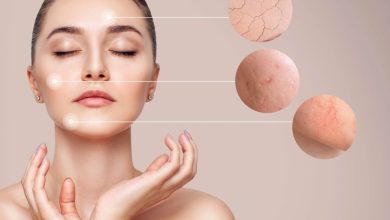6 Common Myths And Facts About Menopause

30-Second Summary
- Menopause does not have to mean the end of a woman’s sexual life. While some women may experience changes in their sex drive or sexual response during menopause, many others do not.
- Hot flashes are the most common symptom of menopause, but they are not the only ones.
- Menopause is a natural process that occurs as a woman’s body transitions into older age. It is not a disease.
- Menopause is considered “natural” if it occurs between 45 and 55.
- Menopause does not mean the end of fertility. A woman can still become pregnant after menopause.
- Menopause is not a death sentence. Instead, it is a natural process that occurs as a woman’s body transitions into older age.
- Menopause is a unique experience for every woman. While some women may have few or no symptoms, others may find the menopausal transition quite difficult.
- There are many things you can do to ease menopausal symptoms. Some simple lifestyle changes, such as maintaining a healthy weight and getting regular exercise, can help.
Introduction
It’s no secret that menopause can be a difficult time for women. Between the hot flashes, mood swings, a decreased sex drive, and insomnia—it’s hard to know what to expect. Unfortunately, there is a lot of misinformation out there about menopause. For instance, while most women do experience some menopausal symptoms, not all women do. Some women have no symptoms at all. Menopausal symptoms vary from woman to woman, and they can also change over time.
Several things can help ease menopausal symptoms. Some women find relief with over-the-counter or prescription medications. Others find that lifestyle changes, such as exercise, relaxation techniques, and a healthy diet, are helpful. Unfortunately, there is no one-size-fits-all solution for menopause, so it’s important to experiment until you find what works best for you. Talk to your doctor if you’re having trouble managing your symptoms.
In this article, we will debunk six common myths about menopause and provide you with the facts.
6 Common Myths And Facts About Menopause: Debunking The Misinformation
Menopause is a natural process that happens as women age, and it doesn’t have to be a negative experience. Menopausal symptoms can be managed with lifestyle changes, over-the-counter treatments, and prescription medications. If you’re experiencing menopausal symptoms, talk to your doctor about treatment options.
Myth # One: Menopause Is the End of A Woman’s Sex Life.
Fact: Menopause does not have to be the end of your sex life. While some women do experience decreased libido during menopause, and maybe sex won’t be like you experienced when you were in your 20s. But, there are ways to manage this symptom. Talk to your doctor about treatment options, such as top-rated menopause supplements, hormone therapy or vaginal lubricants. There are also many ways to spice up your sex life, regardless of menopause.
Myth # Two: Menopause Is Synonymous with Weight Gain.
Fact: Estrogen levels are decreasing in women across their lifetimes, making it more likely that any excess pounds will accumulate around their midsection. But, menopause itself does not cause weight gain. However, the hormonal changes during menopause can contribute to weight gain. These changes can lead to increased appetite, cravings for certain foods, and fluctuations in metabolism.
Myth # Three: Menopause Is Synonymous with Hot Flashes.
Fact: Hot flashes are the most common symptom of menopause, but not all women experience them. Hot flashes are sudden feelings of warmth, flushing, or sweating that can be accompanied by a rapid heart rate, dizziness, or headache. Hot flashes typically last for a few minutes and can occur several times a day. Some solutions offer relief, such as Bioidentical Hormone Therapy (BHT) and Estrogen Replacement Therapy (ERT).
Speaking of solutions, you can consider taking menopause supplements to relieve your symptoms. According to Health Web Magazine reviews, Kindra is one of the known menopause supplements on the market. It is entirely natural, does not have any side effects, and comes with a money-back guarantee.
Myth # Four: Menopause Is Caused By Aging, or It Occurs In Your 50s.
Fact: The typical age of menopause is between 45 and 55, although it can happen as early as your 30s. But, menopause is not caused by aging. Menopause is a natural process that happens when a woman’s ovaries stop producing eggs. However, some factors can contribute to early menopause, such as surgery to remove the ovaries or certain medical conditions. It can also be genetic. Sometimes, no cause can be identified. About 5% of women in the United States go through menopause before 45, while 1% before the age of 40.
Myth # Five: You Need to Take Hormones to Ease Menopausal Symptoms.
Fact: Hormone therapy is the most effective treatment for hot flashes and other menopausal symptoms. However, hormone therapy is not for everyone. Some women cannot take hormone therapy because of health conditions or personal preferences. Many lifestyle changes can help ease menopausal symptoms, such as maintaining a healthy weight, eating a balanced diet, exercising regularly, or taking top-rated menopause supplements.
Myth # Six: Menopause Makes You Forgetful.
Fact: Menopause does not cause forgetfulness. However, some women may experience memory problems during menopause. This is most likely due to the stress of menopause and other changes that happen in a woman’s life. Since the average age of menopause is 51 years old, cognitive fog and forgetfulness become more apparent, though it isn’t always due to menopause. There are various other reasons for cognitive decline, including depression, anxiety, drug side effects, poor nutrition, tension, and thyroid problems. If you’re experiencing memory problems, talk to your doctor about treatment options. There are many ways to improve memory, such as exercise, meditation, and relaxation techniques.
Conclusion
Menopause is a natural process that happens as women age, and it doesn’t have to be a negative experience! Menopausal symptoms can be managed with lifestyle changes, over-the-counter treatments, and prescription medications such as menopause supplements like Kindra. If you’re experiencing menopausal symptoms, talk to your doctor about treatment options. Don’t let the myths about menopause stop you from living your best life! What are some other common myths about menopause that you’ve heard? Let us know in the comments below!



